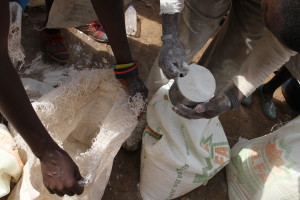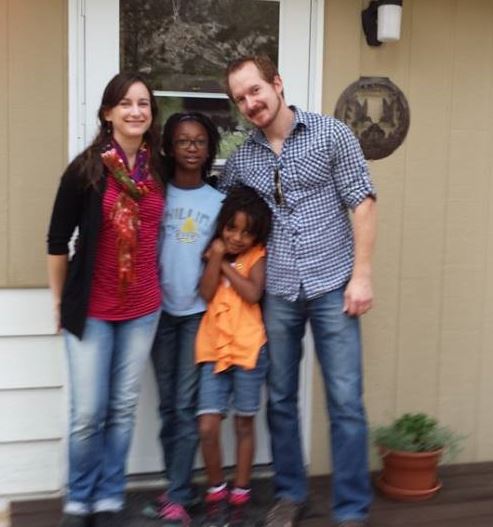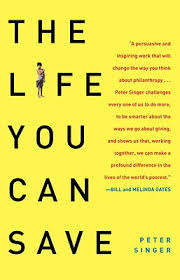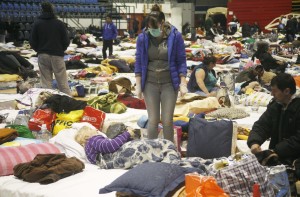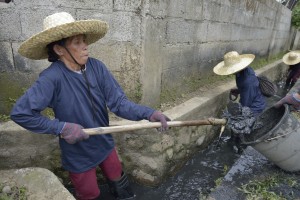June 2014
“Neither economic growth that ignores environmental cost nor conservation of nature that ignores human cost is sustainable. Both will result in injustice and, eventually environmental degradation. We know that a healthy economy can exist only within a healthy environment, but that it is difficult to promote both in our decisions.”
Caring for Creation: Vision, Hope and Justice (1993)
In early June, the U.S. Environmental Protection Agency proposed a rule that will require states to work with power companies to reduce the emissions of carbon dioxide from power plants. Power plants are a major source of carbon pollution, which scientists say is causing the earth’s climate to change, posing a danger to the future of God’s people and to all of God’s creation.
ELCA Presiding Bishop Elizabeth Eaton joined with Presiding Bishop Katherine Jefferts-Schiori of the Episcopal Church in issuing a statement praising the new rule, noting that it will help to protect many of our neighbors and ensure a safe and healthy world for future generations. The ELCA Advocacy office is also working to engage our network over the course of this summer to speak out in support of these rules by sending comments to the EPA, speaking at a hearing, sending a letter to the editor of a local paper, or teaching others about the importance of this rule.
But we’re getting some questions about the potential impact of this rule on the economy and on jobs. Some groups, including the U.S. Chamber of Commerce, argue that this rule will eliminate jobs in the power sector and in fossil fuel industries, particularly coal mining. They say that electricity prices will increase dramatically, harming low income people and businesses.
Their argument is not a new one: frequently when new environmental rules are announced business and industry representatives claim that the harm to the economy will be enormous and that the cost is not worth the impact. The power industry made that claim in the 1990s, when the EPA moved to regulate power plant emissions to reduce acid rain. They made that claim two years ago when the EPA finalized a rule to reduce mercury emissions. These arguments are based in a belief that we need to choose between a healthy future for our children and economic growth.
But this is not only a tired argument, it also poses a false choice. For example, between 1970 and 2011, emissions of common air pollutants dropped 68 percent, primarily due to the federal Clean Air Act. At the same time, U.S. gross domestic product grew 212 percent and total private sector jobs increased by 88 percent. Because of the Clean Air Act, our air is cleaner, our economy has grown, jobs have been created in new and innovative industries, and dire predictions about the high cost and economic impact of environmental regulation have proven to be false time and time again. In fact, according to a report from the Economic Policy Institute, historically the cost of complying with environmental regulations is nearly always less than estimated at the time the regulation is proposed.
Under this proposed rule, states will have flexibility in meeting the emissions standards for carbon dioxide—they will have the option of investing in renewable energy sources, promoting energy efficiency measures, and switching from coal to less polluting fossil fuels (such as natural gas) to generate electricity. They will be able to work regionally to reduce emissions, which will help states with a heavy reliance on coal to reduce their emissions over time. And many states are already taking these steps to reduce their emissions of carbon dioxide and other greenhouse gases, such as California and many of the northeastern states. Many of the states that are already reducing their emissions have actually seen their economies grow since taking those steps, even in the midst of a global recession.
Arguments that energy costs for low income Americans will increase dramatically are equally questionable—one way that power companies will be able to comply with the carbon rules is by increasing the energy efficiency of homes and businesses. This means that they will need to provide incentives for landlords to make rental properties, including those in low income neighborhoods, use less electricity. Businesses, including manufacturers, will also have incentive to reduce energy use, which will keep costs to consumers from rising significantly as well. Under the rules it’s certainly possible that electricity could cost somewhat more, but we will be using less, and our air will be cleaner.
Assertions that these regulations will be too costly today also ignore the future economic costs of climate change. A recent, bipartisan report outlines the significant future economic risks associated with climate change and extreme weather. Sea level rise, changes in temperature and rainfall, and increases in hurricanes and other extreme events will wreak havoc on the economies of coastal states and farm states alike; increased heat across the U.S. will reduce worker productivity and require significant investments in increased energy production. Failure to act now is a recipe for billions in economic impacts in the future.
Finally, the E.P.A. estimates that the carbon rule will have significant public health benefits, worth an estimated $55 billion to $93 billion per year in 2030. This includes avoiding 2,700 to 6,600 premature deaths and 140,000 to 150,000 asthma attacks in children. These climate and health benefits far outweigh the estimated annual costs of the plan, which are $7.3 billion to $8.8 billion in 2030.
Climate change poses a threat to our most vulnerable neighbors, as well as to the future of God’s children and all of Creation. Unless emissions of carbon dioxide are reduced dramatically and soon, the threat of climate change will only grow worse; power plants account for nearly 40 percent of U.S. carbon dioxide emissions, and the U.S. is the second largest emitter of carbon dioxide in the world. Unless our country acts, along with other major emitters, the rest of the world will suffer the consequences, and so will our children. This rule is a key way to show leadership on a critical problem and deserves our strong support.
Tell the EPA what you think! Register your comments in our Action Center!
—–
Want to learn more about ELCA’s commitment to advocating for public policy that supports the care for creation?
Visit our website
Like us on Facebook
Follow us on Twitter
